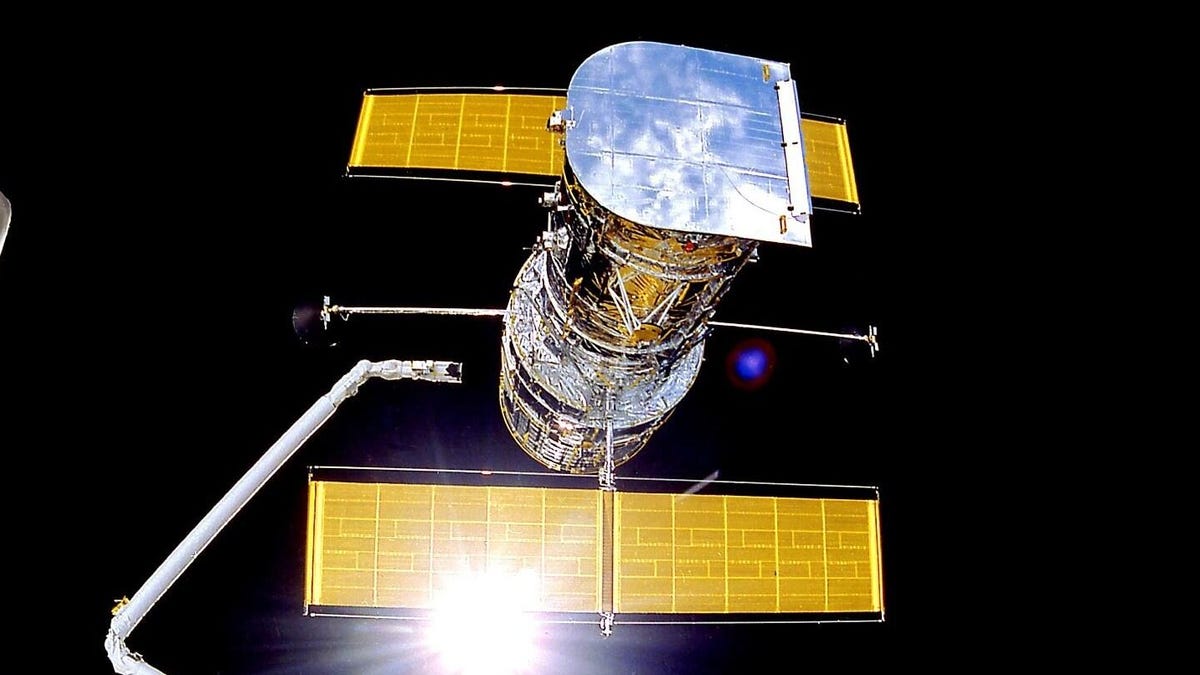NASA preps 'more complex and riskier' Hubble Space Telescope fix
The aging telescope's fate may lie with whether the telescope's backup hardware is working right.

The NASA/ESA Hubble Space Telescope during deployment in 1990.
The Hubble Space Telescope has spent over three decades delivering glorious images and data, but it's showing its age. The Hubble team is still troubleshooting a problem with the telescope's payload computer -- a piece of hardware built in the 1980s -- that controls its science instruments. So far, the fixes haven't worked, but the agency isn't giving up.
The computer issue cropped up on June 13. "After analyzing the data, the Hubble operations team is investigating whether a degrading memory module led to the computer halt," NASA said in a statement a few days later. Hubble is a joint project from NASA and the European Space Agency.
Hubble's time stuck in safe mode is lengthening. In a June 18 update, NASA said the telescope and science instruments are healthy. NASA announced on June 22 the memory issue might actually be a symptom of a problem with a different piece of computer hardware. NASA ran additional tests that included turning on Hubble's backup payload computer for the first time since it was installed during a space shuttle servicing mission in 2009.
"The tests showed that numerous combinations of these hardware pieces from both the primary and backup payload computer all experienced the same error -- commands to write into or read from memory were not successful," NASA said on June 25.
As the investigation continues, NASA is preparing to turn on backup hardware that's part of the Science Instrument Command and Data Handling unit where the payload computer lives. The team is eyeing a power regulator component as well as hardware that sends and formats commands and data.
"If one of these systems is determined to be the likely cause, the team must complete a more complicated operations procedure to switch to the backup units," NASA said in an update. "This procedure would be more complex and riskier than those the team executed last week, which involved switching to the backup payload computer hardware and memory modules."
This next step is set to occur over at least the next week and will involve executing the procedure in a simulation before it's attempted with the real telescope.
The telescope has weathered a series of technical glitches in recent years. A software error sent it into safe mode for several days in March.
Hubble has been remarkably resilient as scientists wait for the much-delayed next-generation James Webb Space Telescope to launch, hopefully later this year. James Webb will continue to expand on Hubble's legacy.
If past efforts are any indication, Hubble could possibly persevere past this latest problem and resume its valuable science operations, but NASA is also facing the reality of working with old systems that have long outlasted expectations.
Follow CNET's 2021 Space Calendar to stay up to date with all the latest space news this year. You can even add it to your own Google Calendar.

